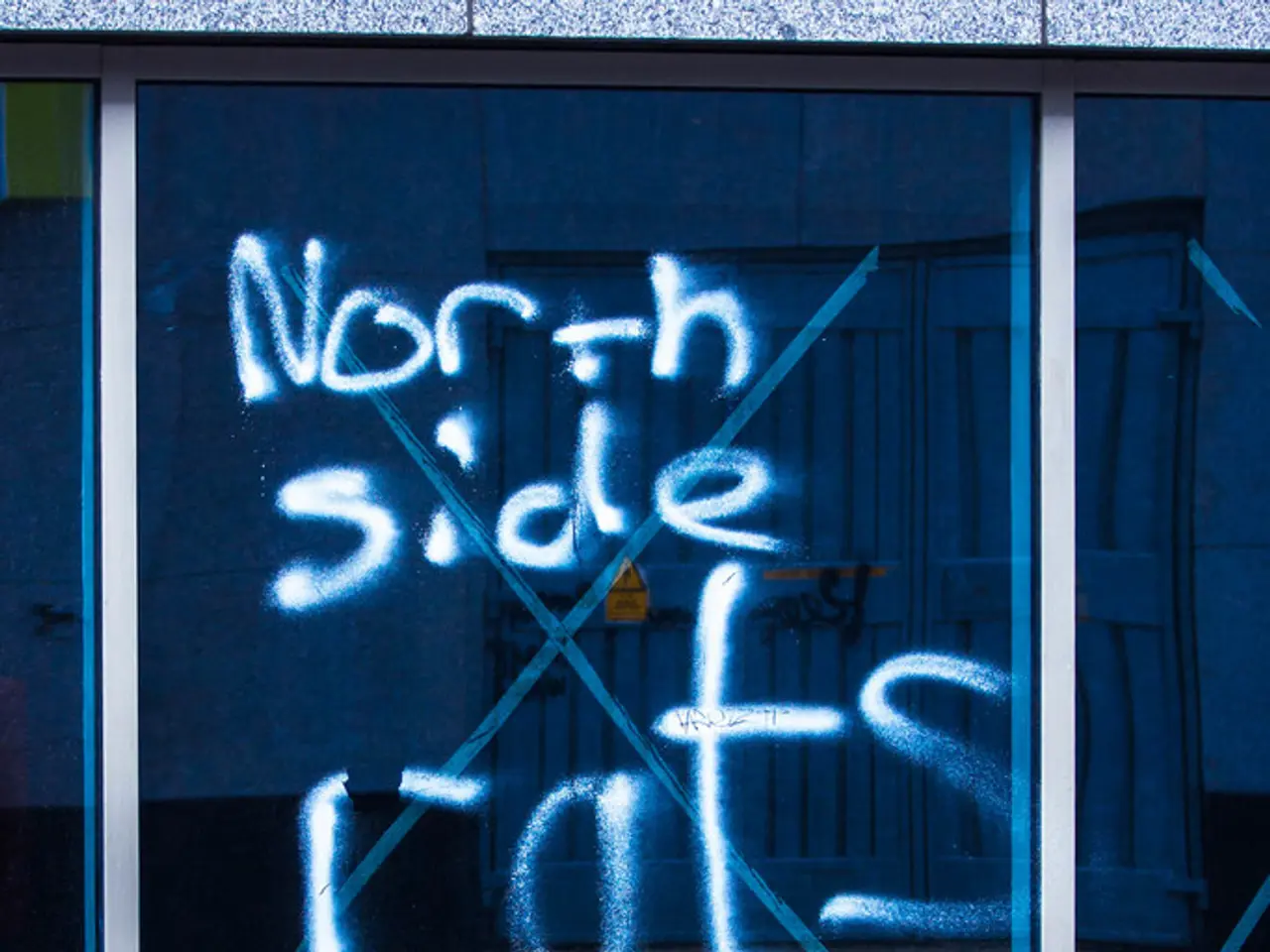Internet users in Russia to face fines for accessing banned "extremist" content online
**New Russian Law to Impose Penalties for Searching Extremist Materials Online**
A new law, Article 13.53 of the Code of Administrative Offenses in Russia, is set to come into force on September 1, 2025, criminalizing the act of intentionally searching for or accessing extremist materials online. This law extends beyond the regulation of the distribution or publication of extremist content, targeting individuals who use hardware, software tools, or VPNs to bypass access restrictions on such content[1][2][3].
The scope of the article includes individuals who intentionally enter queries related to extremist materials from the official federal list into search engines or access these materials via restricted information resources, networks, or sites. The law explicitly includes materials hosted on platforms already labeled extremist by Russia, such as Instagram, Facebook, and WhatsApp, which are owned by Meta and recognized as extremist in Russia[3].
Individuals face fines ranging from 3,000 to 5,000 rubles (approximately $33–65) for each offense[1][2][5]. Law enforcement and telecom operators can track user activities, including search histories, browser records, and internet traffic, especially if encryption or anonymizing tools are not used. Russian search engines and social media platforms are legally obliged to cooperate with authorities by collecting, storing, and handing over user search queries upon request[2].
However, challenges in enforcement and concerns have been raised. Proving intentional searching is difficult based solely on browser history, since accidental visits can occur. Identifying the exact person responsible for the search may be problematic in multi-user devices or shared phones, increasing the risk of wrongful accusations[4]. There may be unintended effects on activists and users who monitor extremist content to report it, since the law does not distinguish motive[5].
Experts and human rights projects have expressed concern that any user who enters a banned query in a search engine or accidentally opens a link could fall under the new law. The bill also introduces penalties for advertising VPN services, with fines for citizens ranging from 50,000 to 80,000 rubles[4].
The bill's ambiguous term "extremism" could potentially include criticism of the authorities, recognized "extremist" songs, and LGBT content. It remains unclear whether the ambiguity of the term will be clarified before the law's implementation[4].
The Chairman of the State Duma Committee on Information Policy, Oleg Matveychev, stated that Russians will only be fined for intentional search and distribution of "extremist" materials[1]. However, the bill does not specify how the authorities will determine whether a search for "extremist" materials was intentional or accidental[1].
The amendments were introduced to an earlier technical bill on the activities of dispatchers, allowing for their swift adoption in the second and third readings[6]. The State Duma's Committee on State Building and Legislation has recommended the introduction of administrative responsibility for searching for and accessing "extremist" materials on the internet[7].
Russia ranked 149th out of 180 in the World Press Freedom Index[8]. The new law raises new privacy and human rights issues, tightening state regulation of the Russian digital information space.
[1] https://www.bbc.com/russian/business-61930612 [2] https://www.reuters.com/world/russia/russia-adopts-law-punish-users-searching-extremist-content-online-2021-11-26/ [3] https://www.rt.com/russia/560387-russia-extremist-content-fines/ [4] https://www.themoscowtimes.com/2021/11/26/russia-to-fine-users-searching-for-extremist-content-online-a76324 [5] https://www.themoscowtimes.com/2021/11/26/russias-new-law-on-searching-extremist-content-online-raises-concerns-a76312 [6] https://www.interfax.ru/russia/813349 [7] https://tass.ru/obschestvo/14350246 [8] https://rsf.org/en/ranking-2021-world-press-freedom-index-2021
In light of the new law, Article 13.53 of the Code of Administrative Offenses in Russia, individuals may face fines for intentionally accessing extremist materials online, including materials hosted on platforms labeled extremist by Russia, such as Instagram, Facebook, and WhatsApp (Meta). Additionally, the bill extends to include penalties for advertising Virtual Private Network (VPN) services (politics, crime-and-justice, policy-and-legislation, general-news).








